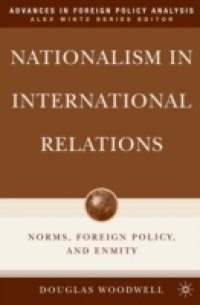Nationalism in International Relations analyzes how the politics of national identity and incompletely realized nation-states influence conflict between states within the international system. While scholars have traditionally focused on political institutions and power politics in their analysis of conflict patterns around the globe, this work examines the explosive role that ethnonational demographic patterns frequently play in promoting interstate distrust, tension, and occasional bloodshed. Employing quantitative analysis and focused case studies, Nationalism in International Studies makes the case for an understanding of regional security politics in many of the world's most contentious hotspots that both transcends and supplements traditional realist and liberal scholarship.

